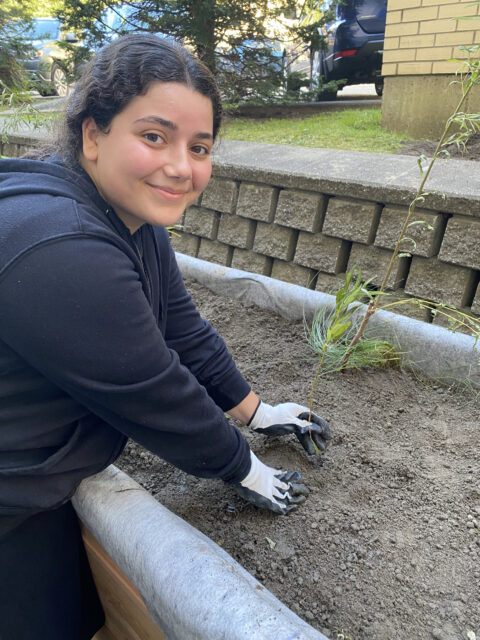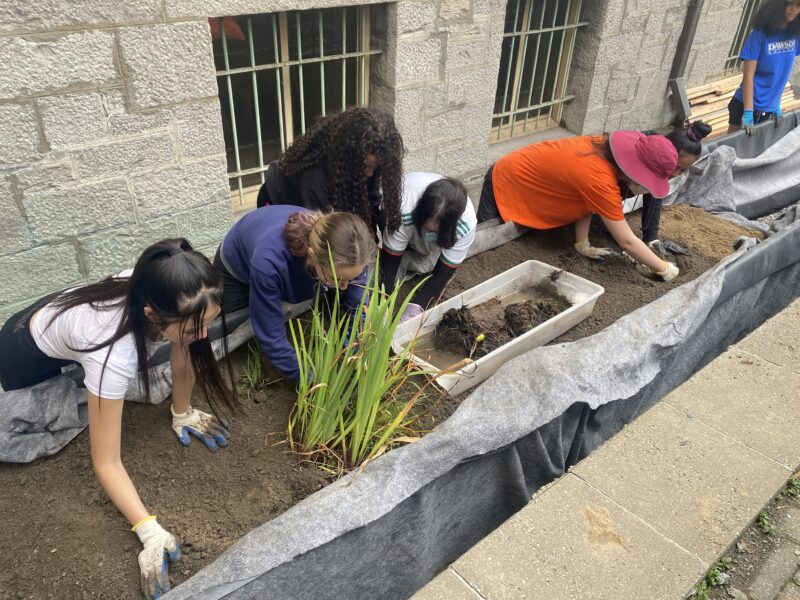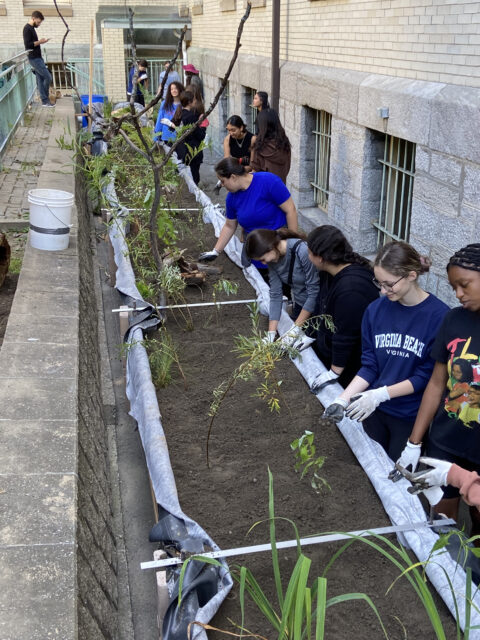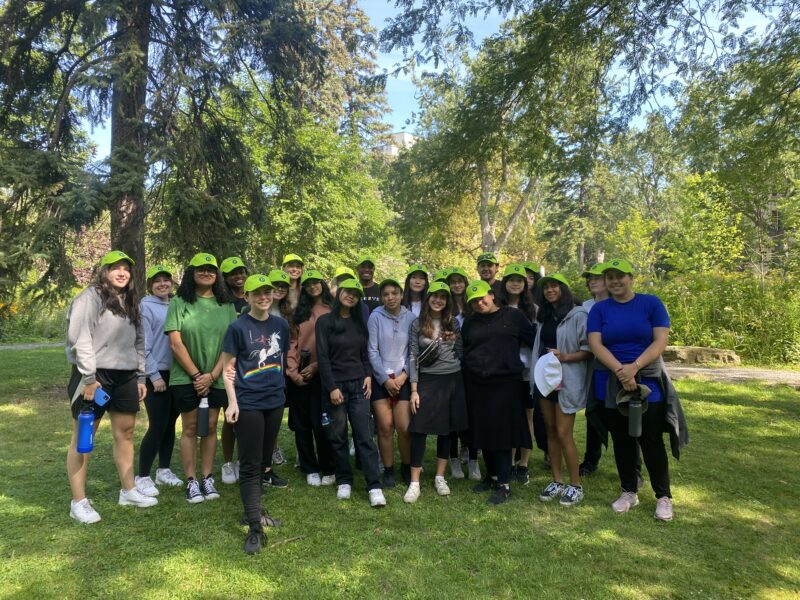Students tackle climate change by building wetland as part of unique Phys. Ed. course
A class of over 25 students reclaimed a concrete area on Dawson’s urban campus by transforming it into a wetland as part of a unique-in-Canada Physical Education course. The brand-new Eco-Landscaping course was co-developed by Dawson’s Physical Education Department and the Sustainability Office.
The new Dawson wetland, located on the Wood Avenue side of the campus just off the main parking lot, holds over 150 plants native to Quebec. These plants catch Dawson’s rooftop rainwater and return cleaner water to the environment. Dawson’s wetland is reducing greenhouse gas emissions and providing a new natural habitat for plants and insects, including dragonflies and damselflies.

The goals of the new course are to connect students to Nature, take action against climate change, create a natural habitat and reduce heat islands and greenhouse gas emissions.
Over the course of only five days from Aug. 10-16, students engaged in physical activity and took action against climate change by moving 20 tons of material by hand. They learned to take care of their bodies and manage risks as well as taking part in Nature-based reflective activities.
The first students in Eco-Landscaping had a great experience.
“You can actually build something and be proud of it,” said second-year Social Science (Psychology Profile) student Alexia Cassandra.
Second-year General Social Science student Kennedy Mailloux said: “When you think of a gym class, you think of weightlifting or running. I wouldn’t say it’s not constructive but it feels like you’re working out just to work out and that’s not really how everyone wants to do things.”
From lack of space came opportunity
With 185 courses per semester, Dawson has the largest Physical Education offering in Quebec. Due to a significant space deficit, the College offers many of its Phys. Ed. courses off campus.
These off-campus courses require the transportation of students, contributing to significant greenhouse gas emissions (GHGs). The Eco-Landscaping course is a zero-transportation alternative.

A climate action demonstration project
This course project is funded by CICan’s ImpAct-Climate national demonstration program. With the help of Ecometrica, they are identifying the transportation-related GHGs for every Physical Education class at Dawson. The data will be used to determine reduction strategies and calculate the number of trees needed to offset these GHGs thanks to a partnership with Taking Root.
This database will then be shared with other colleges as a process blueprint that can be adapted.
Following Dawson’s pledge to be Carbon Neutral Forever, the Phys. Ed. Department is aiming for carbon neutrality by Fall 2023.
Reducing the heat island effect
Since the beginning of the project, interns and volunteers of the Sustainability Office have been recording temperatures three times a day in the pit where the wetland has been constructed to track the bio-retention cell’s effects.
Downtown Montreal has “a lot of pavement and asphalt, and if you’re cutting down trees, you’re going to raise the temperature,” said Kal Rochon, an intern with the Sustainability Office. “This wetland will counteract that by returning some green space.”
Nature as mentor

The response of the student group was overwhelmingly positive during a closing reflection session. They said they felt joy and a sense of accomplishment.
For second-year Social Science (Environmental Studies Profile) student Julieta Lozano-Ramsay, one of the key takeaways from the course was learning about herself and the importance of Nature as mentor: “You can take any field in the world and bring Nature into it because it has always been there. It’s the basis of everything.”
“We try to make sure that every student leaves here with the idea that there’s a lot of things going into a person’s wellness,” said Eco-Landscaping teacher Paul Wasacz.
“One of those things is environmental wellness, and that allows students to be active participants in trying to make the campus and the Island of Montreal better in terms of environmental sustainability.”
Dawson’s new Eco-Landscaping course was offered for the first time as a pre-semester outdoor education intensive. The Phys. Ed Department and Sustainability Office are working on new possibilities for future courses.



